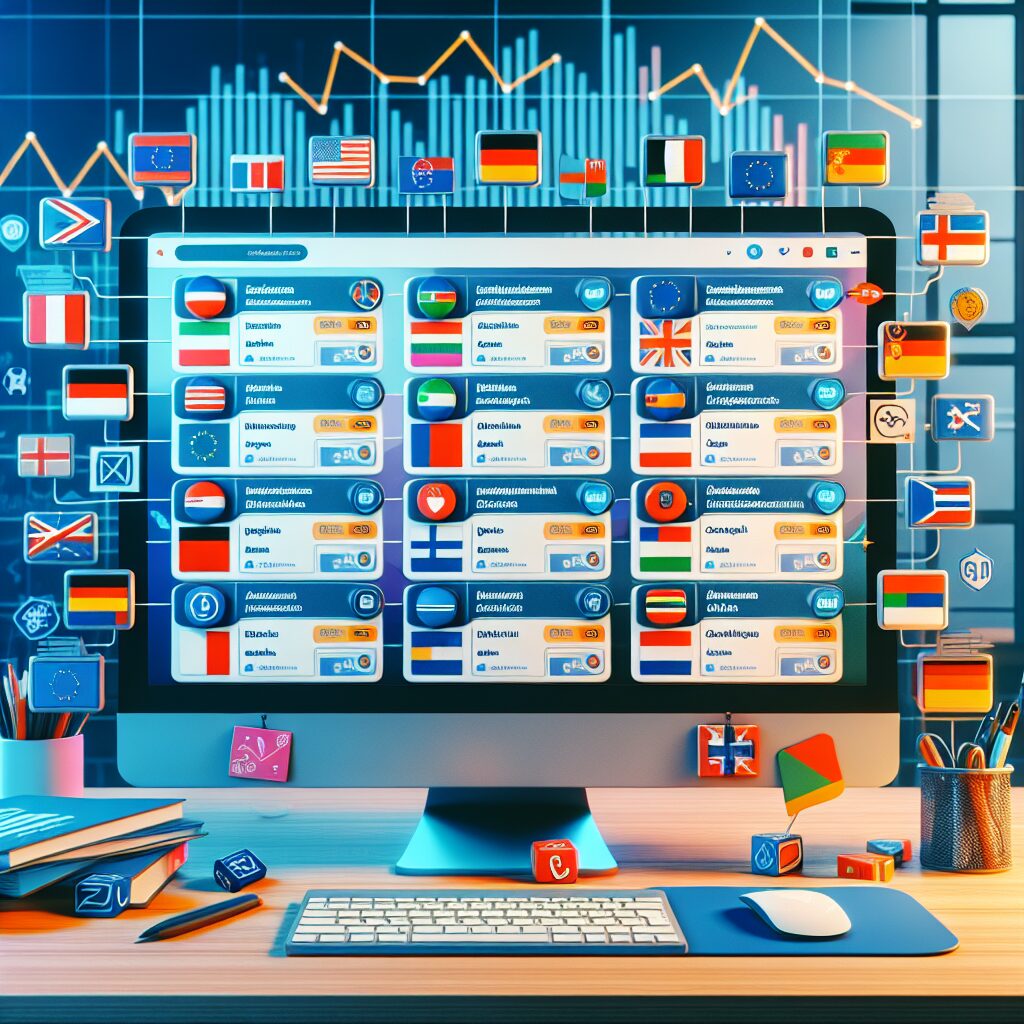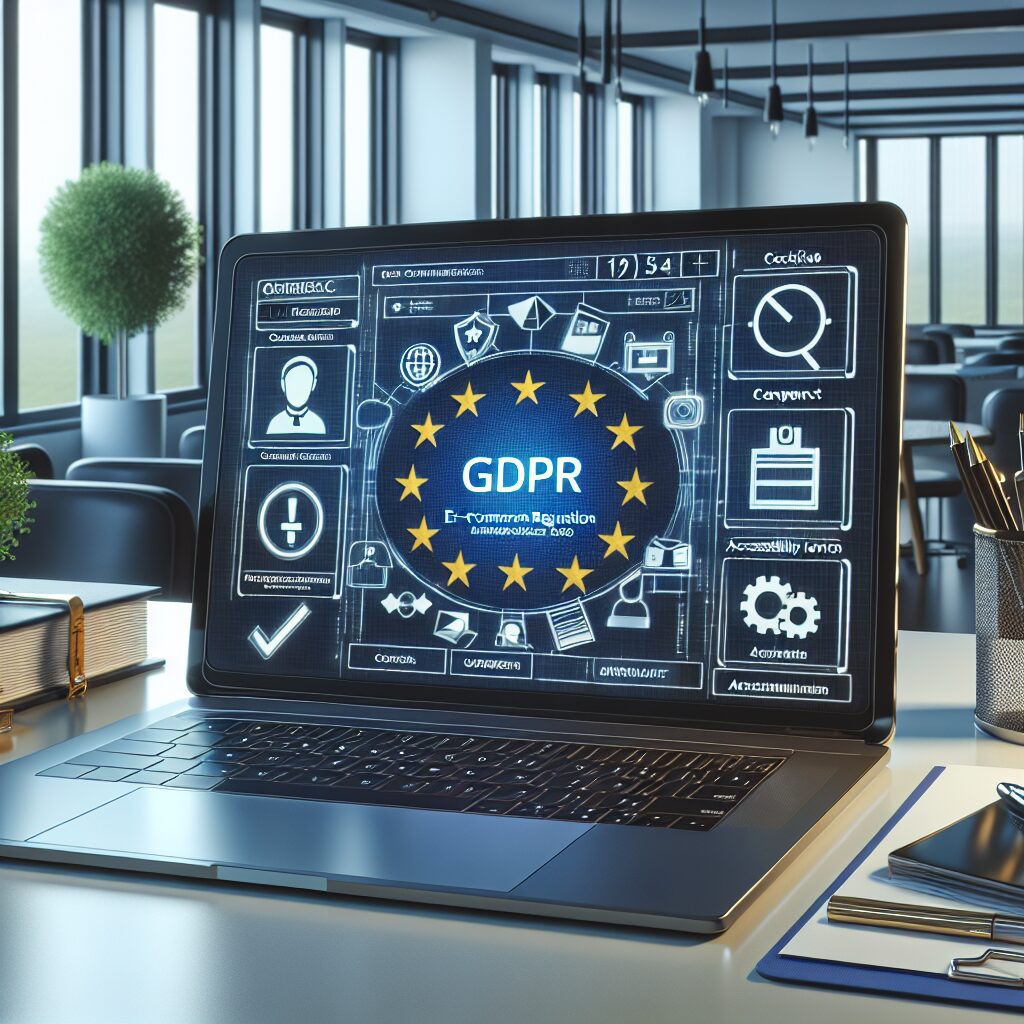About eldris
At Eldris, we automate SEO, multilingual site expansion, and EU compliance for brands scaling across Europe. Our AI-powered platform handles everything from content publishing to regulatory docs—so you don’t have to.
In This Article
- VerpackG requires all packaging placed in Germany to be registered, reported, and recycled as per the LUCID system.
- WEEE governs the handling of electronic and electrical product waste; compliance is required across all EU member states where sales occur.
- Dual compliance is mandatory for many sellers and failing to register can lead to bans and financial penalties.
- Non-EU sellers must appoint Authorised Representatives to handle their compliance responsibilities legally.
- Common mistakes include underestimating which products fall under scope and missing report submission deadlines.
- Eldris offers a comprehensive compliance solution to simplify dual obligations across all EU markets.
What Is VerpackG and Why Does It Matter?
Purpose and Scope of VerpackG
The German Packaging Act, known in legal vernacular as VerpackG, is a vital piece of legislation that directly impacts businesses selling goods within or into Germany. Introduced to replace the former Packaging Ordinance (VerpackV), VerpackG came into effect on 1 January 2019. The law mandates that all companies placing packaged products onto the German market are responsible for ensuring those materials are properly collected, sorted, and recycled. Compliance is neither optional nor occasional—it is a legal duty.
VerpackG requires manufacturers, online sellers, and importers to register with the LUCID Packaging Register—a publicly accessible database operated by the Zentrale Stelle Verpackungsregister (Central Packaging Register Authority). Proper registration and reporting of packaging volumes is mandatory. The law categorises packaging into several types: sales packaging, grouped packaging, transport packaging, and others—each with their own rules governing disposal and documentation.
The intent behind VerpackG is twofold: to limit environmental harm caused by excessive or non-recyclable packaging, and to create transparency among market operators. Importantly, non-German companies selling to consumers in the country via e-commerce channels are not exempt. Failure to comply may result in fines reaching €200,000 and sales bans. Therefore, understanding and implementing VerpackG compliance is critical for any business engaging with the German market.

Understanding WEEE and Its Obligations
Who Must Comply With WEEE?
WEEE, an acronym for the Waste Electrical and Electronic Equipment Directive, is an EU-wide regulation that governs the disposal and recycling of electrical and electronic goods. The directive places the onus on ‘producers’—defined broadly to include not just manufacturers but also importers, distributors, and online retailers selling directly to EU customers. This includes businesses based outside the EU who sell electronic products directly into the European Union via online platforms.
The central aim of the WEEE Directive is to mitigate the environmental impact associated with electronic waste, which is among the fastest growing waste streams globally. It requires affected parties to finance the collection, treatment, recovery, and environmentally sound disposal of electrical and electronic waste. Similar to VerpackG, WEEE also necessitates registration. However, this must be done in each member state where products are sold, resulting in a decentralised and sometimes complex compliance process.
Furthermore, reporting obligations under WEEE include providing data on quantities placed on the market, as well as demonstrating proof of takeback systems or participating in collective recycling schemes. The Directive covers a broad range of products including computers, phones, televisions, lamps, and kitchen appliances. Crucially, if your e-commerce business sells items containing electronics—even in a small component—you may fall within the scope of WEEE.
Clarity in compliance begins with understanding your responsibilities under both VerpackG and WEEE, no matter where your business is based.
How Do VerpackG and WEEE Overlap for Sellers?
VerpackG and WEEE, while targeting different environmental concerns—packaging and electronic waste respectively—often overlap especially for e-commerce sellers. For instance, a company selling mobile phones must register the devices under WEEE and the product packaging under VerpackG. This creates a dual obligation that some businesses overlook, mistakenly registering only for one.
Many products fall under both frameworks. Any electric item sold within Germany and wrapped in sales packaging automatically triggers responsibilities under both directives. Hence, it’s essential for sellers to understand that these are not interchangeable systems. Registering with WEEE does not satisfy VerpackG obligations, and vice versa. Each framework demands separate fulfilment, including distinct registration, reporting, and takeback requirements.
To remain compliant, businesses should conduct a compliance audit of their products, identify overlapping regulatory needs, and ensure that they maintain proper records corresponding to both VerpackG and WEEE.
Who Needs Dual Registration in the EU?
Dual registration under both VerpackG and WEEE is mandatory for a wide range of businesses, especially those engaged in cross-border commerce. This includes: non-EU companies selling directly to consumers in Germany, drop shippers fulfilling orders into Germany, and marketplaces listing products that fall within the scope of either regulation.
If your business sells electric razors directly to German consumers, for instance, you would need to register the devices under Germany’s WEEE authority and register any associated packaging under the LUCID system for VerpackG. Non-compliance in either area not only risks fines but can also lead to public naming and shaming, as the LUCID registry is accessibly indexed for retailer transparency.
Moreover, EU sellers who fulfil deliveries to multiple countries may be required to register for WEEE schemes in each destination country. Even if your items are relatively low in volume, thresholds for compliance in packaging and electronics are often zero, meaning every unit counts. In this highly regulated environment, ignorance is no defence.
Steps to Register for VerpackG and WEEE
Start with identifying the product scope. If your business sells electrical or electronic equipment, determine the categories outlined under the WEEE Directive and examine local interpretations in each member state. For packaging, assess all materials accompanying the product—primary, grouped, and transport packaging—each must be measured and reported under the VerpackG system.
Next, appoint an Authorised Representative (AR) if your business is not physically located within the EU. This AR steps in to fulfil your legal duties in the respective member state. For both VerpackG and WEEE, this representative must be formally appointed and recognised by the respective authorities.
Then, submit your registrations. For VerpackG, this means enrolling through the LUCID portal and signing a contract with a dual system waste scheme. For WEEE, this requires registering with the local WEEE authority in each member state and documenting product categories, brand names, and unit forecasts. Reporting is usually required quarterly or annually, depending on volume.
Timely reporting and accurate mass declarations are essential. Keep detailed records of product weights, units, and recycling fees paid. Failure to align your records could result in audits, fines, or even suspension of sales through marketplaces such as Amazon or eBay.
Responsibilities for Non-EU Based Sellers
Non-EU sellers, especially those operating from the UK post-Brexit, must approach VerpackG and WEEE compliance with disciplined planning. Unlike pre-Brexit days, UK businesses are now viewed as third countries in the EU context. This shift means that a UK seller must now officially appoint Authorised Representatives for both VerpackG and WEEE in any country where they sell physical goods.
These representatives are not mere figures; they bear the legal liability for your business’s compliance. Moreover, some compliance schemes require that only in-country authorised representatives may participate, further increasing the need for local partners.
Additionally, non-EU sellers must submit foreign tax identification and business registration documents to access LUCID or local WEEE systems. Some countries also require translations or notarised versions of legal documents. The administrative burden is considerable, but essential to avoid penalties and marketplace suspensions.
Common Mistakes in EU Compliance
Several recurring mistakes afflict businesses attempting EU compliance. One frequent error is the assumption that registration with one framework suffices for both. As explained earlier, VerpackG and WEEE are wholly separate legal entities with different compliance procedures.
Another common issue is misjudging the product scope. Many businesses believe their goods do not contain electronics or do not require packaging registration, only to discover later that tiny embedded components or simple user manuals printed in plastic inserts count toward regulatory weight.
A further pitfall is missed deadlines. Both VerpackG and WEEE operate on strict quarterly or annual reporting cycles. Late submissions trigger warnings, fines, or potential tax audits. Moreover, incorrect volume declarations—whether due to rounding errors or misreporting—can be interpreted as fraudulent activity by regulators.
How to Simplify Reporting for Both Frameworks
To streamline reporting, companies should invest in compliance software or consult third-party agencies with country-specific expertise. Integrated solutions exist that track product weights, monitor multi-country obligations, and automate submissions for both VerpackG and WEEE compliance.
Some online marketplaces have begun integrating compliance dashboards that alert sellers to expiring documentation or missing AR appointments. Business owners should leverage these tools to stay ahead of changing regulatory requirements. Establishing internal documentation procedures—such as storing invoices, registration numbers, and recycling declarations in a centralised platform—is equally beneficial.
Additionally, consider outsourcing complex compliance tasks to specialists in EU environmental law. While it introduces additional cost, it often saves far greater sums in prevented penalties. Learn more about EU E-Commerce Compliance
Penalties for Non-Compliance: What to Know
The penalties for non-compliance with VerpackG or WEEE are stringent and actively enforced. In Germany, VerpackG violations can trigger fines of up to €200,000 per offence. More concerning perhaps is the reputational damage: the LUCID registry publicly lists non-compliant companies, which may compromise your brand’s trustworthiness.
Under the WEEE Directive, penalties vary by member state but commonly include substantial fines, prohibition of sales, confiscation of stock, and in some cases, criminal liability. Non-compliant sellers may also be delisted by marketplace platforms who must enforce Extended Producer Responsibility (EPR) under their own obligations.
Penalties are often issued retroactively, requiring back-payment of fees and late interest charges. It’s a costly error to ignore, particularly for SMEs with tight operating margins. Key German Packaging Act changes for sellers
How Eldris Can Help With VerpackG and WEEE
Read a related article At Eldris, we specialise in simplifying VerpackG and WEEE compliance for large and small businesses alike. With a network of local legal and regulatory experts across the EU, we offer end-to-end setup for both compliance tracks—from identifying your product scope to coordinating local representations.
Our platform helps consolidate both registration and reporting requirements, offers bilingual support, and ensures that your business maintains updated filings with authorities such as the Zentrale Stelle and national WEEE registries. We also offer training resources to upskill your internal teams and reduce future compliance risks.
Whether you run an EU-based marketplace or a non-EU e-commerce brand servicing European clients, Eldris provides a scalable and legally sound way to tackle dual compliance under VerpackG and WEEE.
Final Thoughts on EU Dual Regulation Compliance
[CONCLUSION_CONTENT]
Great guide on verpackg-weee-need-both-eu-ecommerce – Community Feedback
Do I need both VerpackG and WEEE registration to sell in Germany?
If you sell products with packaging and electrical or electronic equipment in Germany, you must comply with both VerpackG (for packaging) and WEEE (for electronics). Each regulation covers different product aspects, so overlapping obligations are common for many e-commerce sellers.
What products fall under VerpackG and WEEE regulations?
VerpackG applies to any packaging entering the German market, including shipping boxes and product packaging. WEEE covers electrical and electronic equipment. If your business ships both, you need to address both sets of requirements.
Are non-EU businesses affected by VerpackG and WEEE?
Yes, non-EU sellers targeting customers in Germany or the wider EU must comply with relevant packaging and electronics regulations. Non-compliance can lead to sales bans or fines, regardless of your home country.








